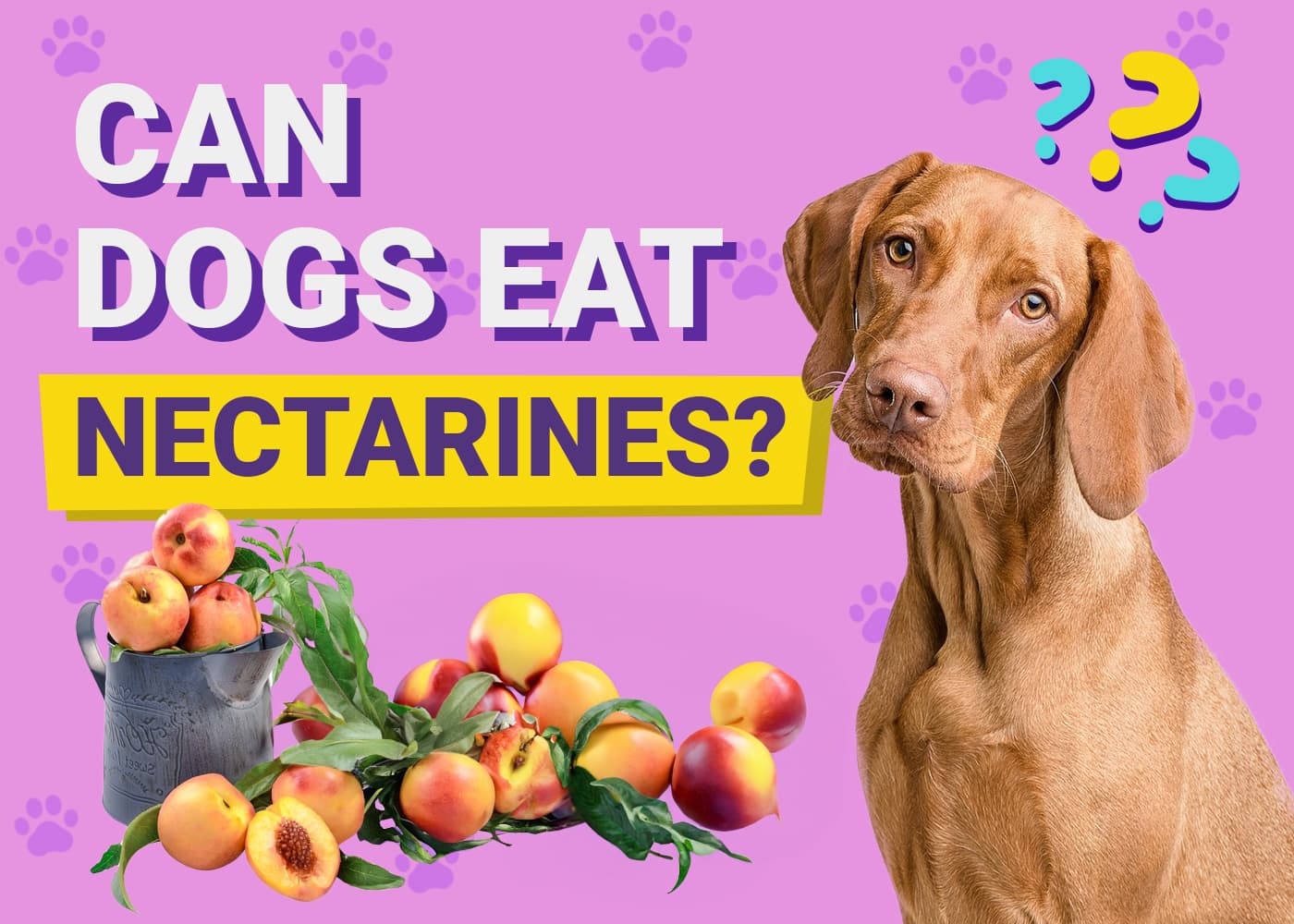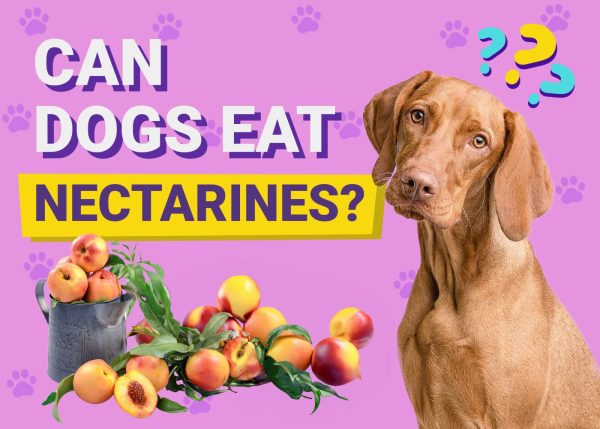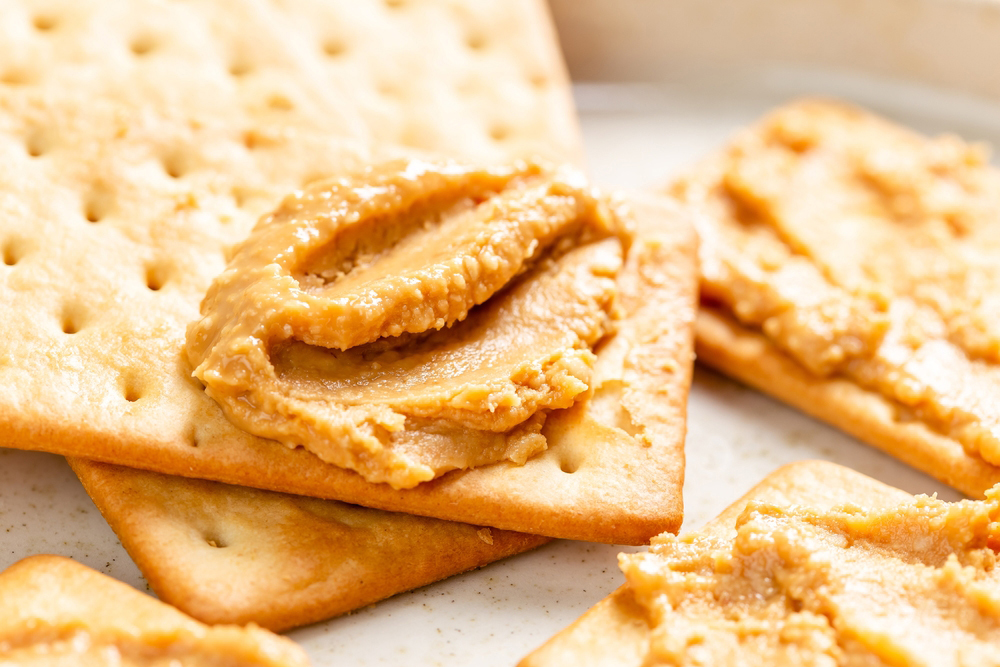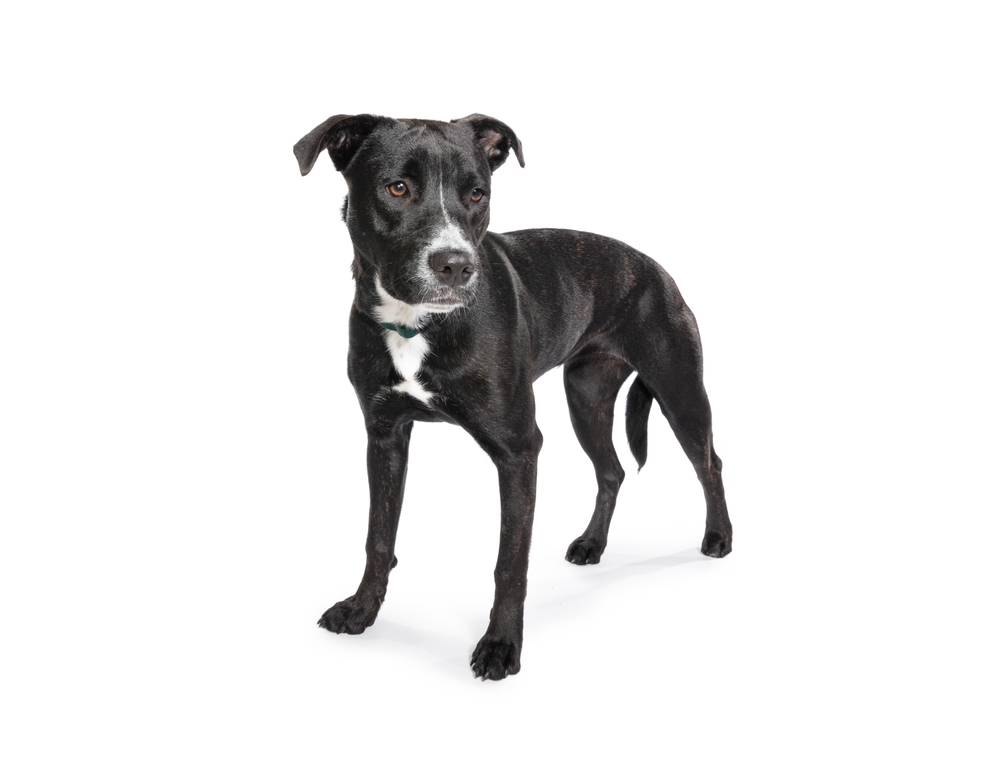Click to Skip Ahead
As pet parents, we are responsible for knowing what types of foods are safe for our beloved animals to eat. When it comes to dogs, we have to be very cautious not to offer certain foods or leave them out unattended. Thankfully, nectarines are not toxic to dogs and are considered safe for them to eat.
Just because a food item is safe, however, doesn’t mean it’s something we should feed our dogs regularly. While nectarines have some wonderful benefits, this isn’t something you should feed your dog in large quantities, and there are some potential dangers associated with the fruit. Keep reading to learn more.
Nectarines – Benefits vs. Drawbacks for Dogs
Nectarines are a type of peach that is distinguished by the genetic mutation that leaves them without the fuzzy skin of a peach. These glossy, smooth-skinned stone fruits grow from deciduous trees that are part of the rose family.
Like all peaches, nectarines can have freestone, clingstone, or semi-freestone pits, and may have either yellow or white flesh. They are sweet, and delicious, and offer up plenty of health benefits since they are packed full of vitamins, minerals, and antioxidants.
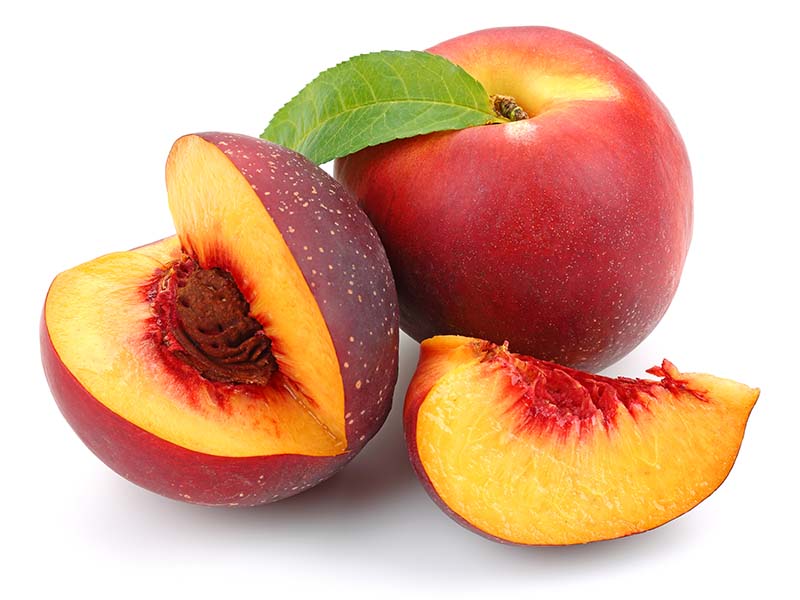
What Are the Benefits of Nectarines?
Not only are nectarines rich in vitamin C, but also niacin, copper, potassium, magnesium, and fiber. They also contain phytochemicals that have both anti-inflammatory and antioxidant properties.
Dogs can most certainly benefit from the nutrients that nectarines have to offer, but it’s important to note that they should already be getting all of their nutritional requirements from their daily diet. There should be no reason to supplement your dog’s normal food regimen with any additional foods unless otherwise advised by your veterinarian.
What Are the Drawbacks of Nectarines?
Even though nectarines are nutritious and aren’t considered toxic to dogs, there are some drawbacks to these delectable fruits when it comes to our dogs consuming them.
Sugar Content
Like many fruits, nectarines are high in natural sugars. While small amounts of fruit won’t cause any harm, a dog’s digestive system is not designed for large amounts of sugar and could cause gastrointestinal upset if large quantities are consumed. Additionally, foods high in sugar (when fed regularly) can lead to obesity, which is directly associated with many other serious health conditions.
Rancidity
If your dog were to eat a nectarine that has gone rancid, it could lead to digestive upset. Rotten nectarines will become very soft, develop dark spots, begin oozing fluid, and will eventually develop mold. Ethanol is formed as a result of food spoilage and is considered toxic to dogs. Any nectarines that have started to spoil should be thrown out right away, as they are not safe for humans or dogs to consume.
Pit
The pits of any fruit, including nectarines, should be kept far away from dogs and disposed of safely. Not only does the pit pose a potential choking hazard, but if swallowed could also put your dog at risk for an intestinal blockage. Additionally, the pit also contains trace amounts of cyanide, which is toxic. If your dog were to eat the pit of a nectarine or any other stone fruit, you should contact your veterinarian right away.
Should I Allow My Dog to Eat Nectarines?
Nectarines may come with some fantastic nutritional benefits, but just because a food contains essential vitamins, minerals, and antioxidants, doesn’t mean you should offer it to your dog.
While the flesh of nectarines is perfectly safe in small amounts and there would be no cause for concern if your dog were to eat some, there’s no reason to add it as a regular part of their diet.
If you’d like to share a nibble with your pup, just make sure the bite is appropriately sized for your dog. Remember to always contact your veterinarian before offering any new food to your pets or if you have any questions regarding the safety of certain foods.

Human Food That Makes the Best Dog Treats
If you want to give your dog a special treat in the form of human food, there are certain options that can make healthy snacks for dogs. You should avoid offering your dog any foods that contain added salt, seasonings, seeds, and other additional ingredients.
As with any type of treat, these foods should only be offered in moderation, but here’s a list of some of the best people foods that can be used as a special treat:
1. Chicken
Plain, cooked, deboned chicken is a great treat option for your pup, providing they don’t suffer from a chicken allergy. It may sound bland to you, but plain chicken will make for a delicious, healthy treat for your dog.
You should never feed from a dinner plate in the first place, but it’s especially important not to because of the added seasonings and salt that we often add. Chicken is a great source of protein, vitamins, minerals, and essential amino acids. It’s also a common ingredient in many dog foods.
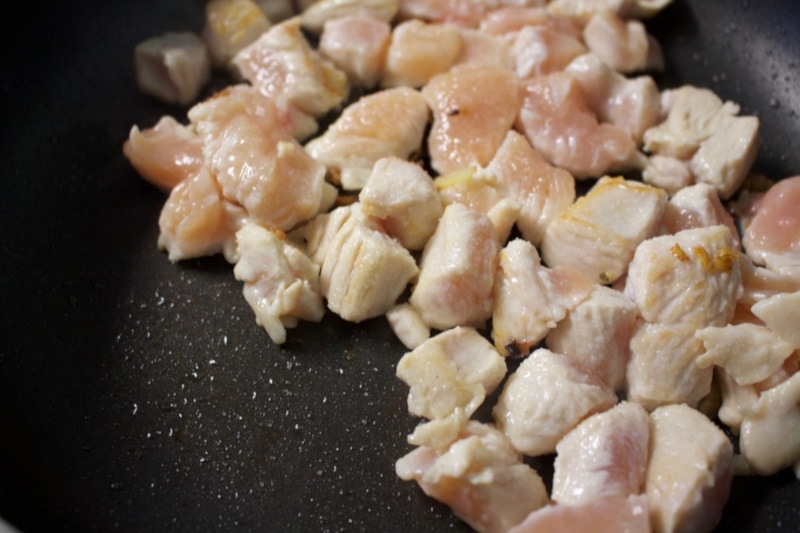
2. Turkey
Turkey is another great protein that is used in many commercial dog foods. Turkey is a lean meat that provides an excellent source of protein, vitamins, minerals, and amino acids. If offered as a treat, it should be fully cooked, unseasoned, and free from any bone.
3. Salmon
Salmon is an excellent source of protein and fatty acids. It’s great for skin and coat health and makes for a delicious, healthy snack for most pups. It can also be a good protein source for many dogs that suffer from allergies to other proteins like chicken or beef. Like with any meat, it should be fed plain and have no added salt or seasonings.
4. Carrots
Carrots make for a wonderful low-calorie snack that can be fed either raw or cooked. Not only are they packed full of fiber, but they are also a great source of various nutrients, including vitamin A. Raw carrots should be chopped, as they can be a potential choking hazard. If you are feeding cooked carrots, avoid adding salt or other seasonings that could be harmful.
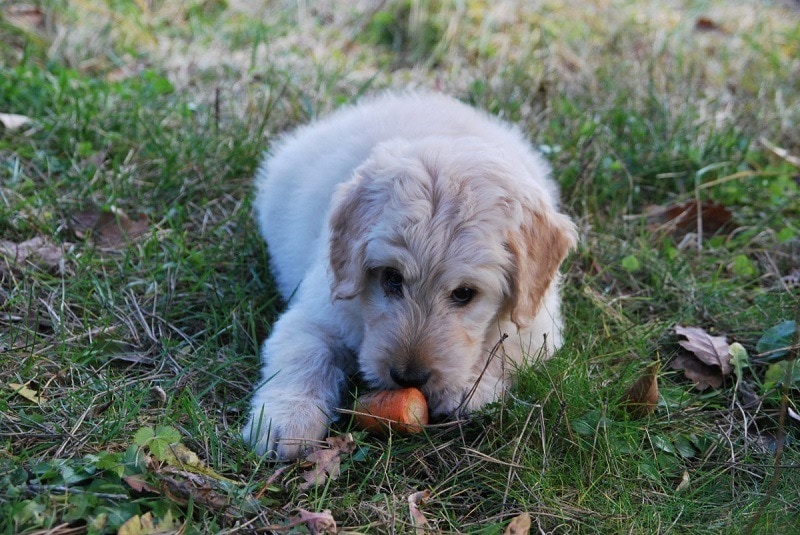
5. Green Beans
Green beans are low-calorie, high in fiber, and a great source of vitamins A, C, K, and folic acid. These veggies make for a great treat and all types of green beans are considered safe for dogs. As with anything else, they should be free from any salt or seasoning, meaning that canned green beans should be the “no salt added’ varieties.
6. Pumpkin
Pumpkin has a reputation for being a go-to for dogs when they are having digestive issues, but it’s also a great treat option. Pumpkins are full of vitamins, minerals, and fiber. They can be fed raw, cooked, or canned, and even the seeds are considered safe to eat.
Raw pumpkin should be cut into appropriately sized portions to prevent them from becoming a choking hazard, bear in mind that it might be harder for your dog to digest also. Canned varieties often come with added spices, so make sure to opt for plain pumpkin when shopping.
7. Blueberries
Blueberries are a fruit that is lower in natural sugars and rich in vitamins, minerals, and antioxidants. They are a safe, nutritious snack and their size makes them an excellent option for use as training treats.
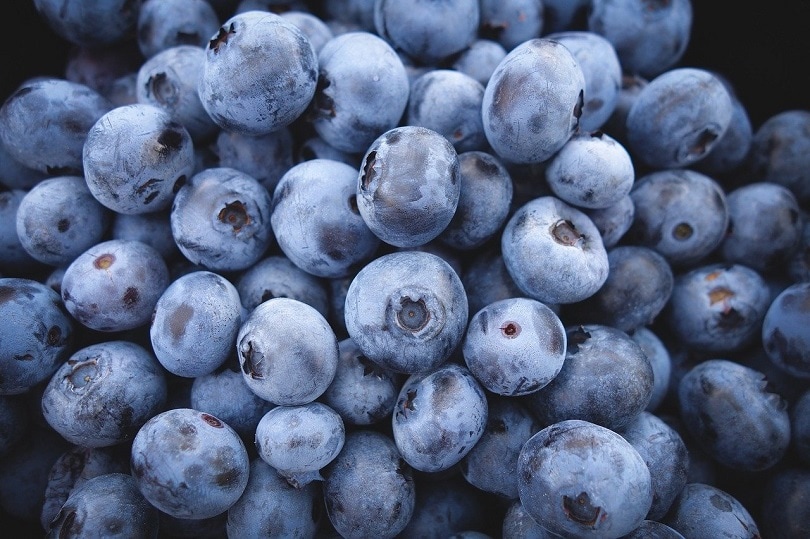
8. Peanut Butter
Peanut butter is a favorite for dogs and is a great treat that can easily be added to puzzle toys. It is very high in fat, so small quantities and in moderation is a must. It often contains added salt, so search for a type that contains only peanut butter.
Be sure to always check the list of ingredients on each package not only to avoid added salt, but you should also never purchase any peanut butter product that contains the artificial sweetener xylitol. Xylitol is highly toxic and can be deadly for dogs.
9. Apples
Apples are a great source of vitamin A, vitamin C, and fiber. They are also typically appetizing for dogs with their sweet taste and crisp texture. The seeds and core should always be removed first and since apples are high in natural sugar, it’s best to only offer them occasionally in small amounts.
10. Sardines
Sardines are rich in protein, healthy fat, vitamins, and minerals. They can make for a simple, easy, but smelly snack that your dog is sure to enjoy. Aim for sustainably sourced, high-quality plain sardines and you can offer these to your pup in small amounts, as long as they aren’t seasoned and don’t contain added salt.
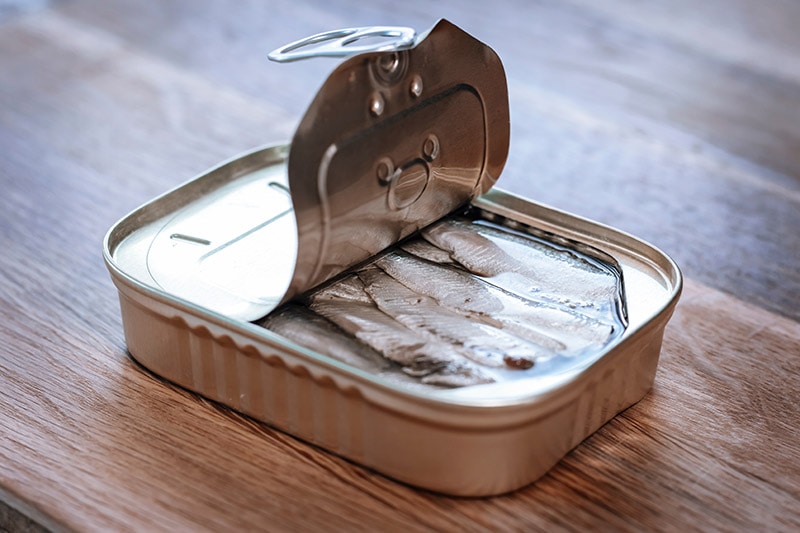
11. Watermelon
Watermelon is another fruit that is lower in sugar and can make for a healthy snack as long as the seeds and rind are removed. Watermelon is rich in vitamin C and contains lots of water, so it’s hydrating for your pooch.
Final Thoughts
The flesh of nectarines is not toxic to dogs and is considered safe for consumption. While safe, nectarines are high in natural sugars and should only be offered in small amounts and in moderation. The pits should be kept safely out of your dog’s reach due to risk of choking, blockages and their toxicity. Any spoiled nectarines should be disposed of right away.
Remember to always consult with your veterinarian if you have any questions regarding foods your dog should or should not eat or if you have any concerns over something that has been consumed.
- Related Read: Can Dogs Eat Parmesan Cheese? Vet Approved Facts & FAQ
Featured Image Credit: MERCURY Studio, Shutterstock

